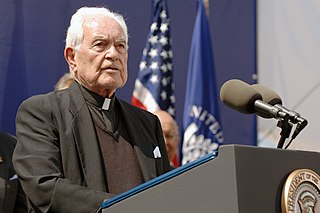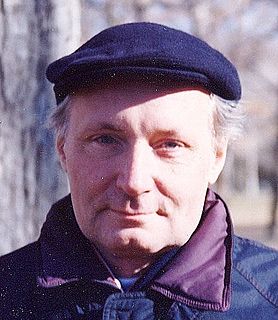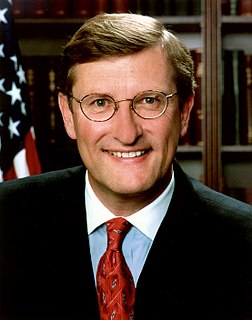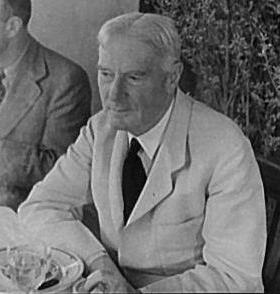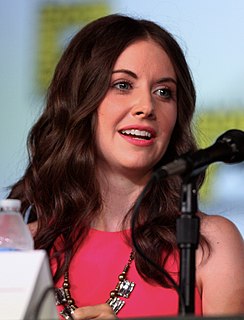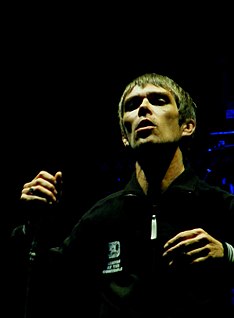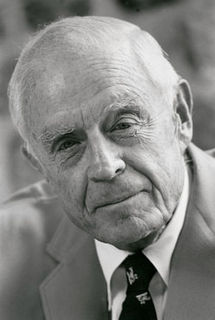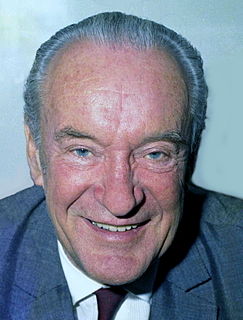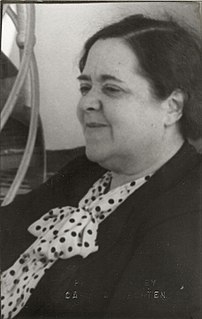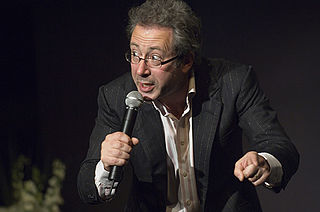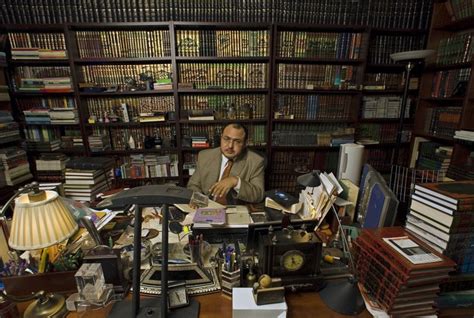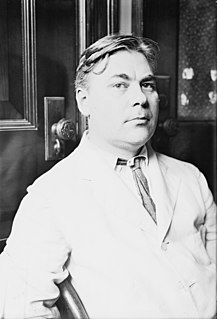Top 922 Reformed Theology Quotes & Sayings - Page 2
Explore popular Reformed Theology quotes.
Last updated on April 22, 2025.
Nothing, indeed, could be more unlike the tone of the [Patristic] Fathers, than the cold, passionless, and prudential theology of the eighteenth century; a theology which regarded Christianity as an admirable auxiliary to the police force, and a principle of decorum and of cohesion in society, but which carefully banished from it all enthusiasm, veiled or attenuated all its mysteries, and virtually reduced it to an authoritative system of moral philosophy.
You see, my Lord Archbishop, what is "dubious" about my theology is not that it contradicts particular doctrinal teachings, things are much worse or better: what I want, is no more and no less than a fundamental change in the whole way that theology is done today; but I want this out of faith, not out of faithlessness.
There is the view I call penal non-substitution, or the penal example view. (It is also called the Governmental View in textbooks of theology.) This is often associated with Arminian theology stemming from the great Dutch jurist Hugo Grotius. However, the view was taken up by [Jonathan] Edwards's disciples in New England, who developed a Calvinistic strand of the doctrine.
The classic theology of my tradition comes from the French Renaissance. [William] Shakespeare was born in 1564, the year [John] Calvin died, and that theology was very influential in England in his lifetime. I think Shakespeare was attentive to questions raised by it, about human nature, history, reality itself. I find the two literatures to be mutually illuminating.
Many Christians in the evangelical tradition use words like "conversion," "regeneration," "justification," "born-again," etc. all as more or less synonyms to mean "becoming a Christian from cold." In the classic Reformed tradition, the word "justification" is much more fine-tuned than that and has to do with a verdict which is pronounced, rather than with something happening to you in terms of actually being born again. So that I'm actually much closer to some classic Reformed writing on this than some people perhaps realize.
The scientific doctrine of progress is destined to replace not only the myth of progress, but all other myths of human earthly destiny. It will inevitably become one of the cornerstones of man's theology, or whatever may be the future substitute for theology, and the most important external support for human ethics.
It sounds superficially fair. But it presupposes that that there is something in Christian theology to be ignorant about. The entire thrust of my position is that Christian theology is a non-subject. It is empty. Vacuous. Devoid of coherence or content. I imagine that McGrath would join me in expressing disbelief in fairies, astrology and Thor's hammer. How would he respond if a fairyologist, astrologer or Viking accused him of ignorance of their respective subjects?
The crime of liberation theology was that it takes the Gospels seriously. That's unacceptable. The Gospels are radical pacifist material, if you take a look at them . . . Liberation theology, in Brazil particularly, brought the actual Gospel to peasants. They said, let's read what the Gospels say, and try to act on the principles they describe. That was the major crime that set off the Reagan wars of terror.
Theology is indispensable for religious communities to make sense of themselves and their changing views about the world in light of what is perceived to be revelation, but, at the same time, that theology can have a pretentiousness, or double pretentiousness, if it is acontextual as opposed to contextual, if it is foundationalist as opposed to antifoundationalist, or ahistorical as opposed to historicist.
Theology asserts propositions that cannot be proven true; ideologues hold stoutly to a worldview despite being contradicted by what is generally accepted as reality. When ideology and theology couple, their offspring are not always bad but they are always blind. And there is the danger: voters and politicians alike, oblivious to the facts.
I hope and believe my co-religionists understand and admit that I disclaim their theology in toto, and that by no twisting of language or darkening of its meanings can I be made to have any thing whatever in common with them about religious matters... they must take my word for it that there is nothing in common between their theology and my philosophy.
The object is evident in the name of the discipline. Similarly, theology (theologia) is the study of God. The object of theology is not the church's teaching or the experience of pious souls. It is not a subset of ethics, religious studies, cultural anthropology, or psychology. God is the object of this discipline.
So Marxism, Freudianism: any one of these things I think is an irrational cult. They're theology, so they're whatever you think of theology; I don't think much of it. In fact, in my view that's exactly the right analogy: notions like Marxism and Freudianism belong to the history of organized religion.
The Resurrection of Jesus is...a symbol of hope...I don't see how you can show love...without being in solidarity with the victims of this world. And if you are in solidarity with the victims, I don't see how you can avoid the cross. The theology of the cross is the theology of love in our real world.
Theology differs from science in many respects, because of its different subject matter, a personal God who cannot be put to the test in the way that the impersonal physical world can be subjected to experimental enquiry. Yet science and theology have this in common, that each can be, and should be defended as being investigations of what is, the search for increasing verisimilitude in our understanding of reality.
If your understanding of the divine made you kinder, more empathetic, and impelled you to express sympathy in concrete acts of loving-kindness, this was good theology. But if your notion of God made you unkind, belligerent, cruel, of self-righteous, or if it led you to kill in God's name, it was bad theology.
when Christian theology becomes traditionalism and men fail to hold and use it as they do a living language, it becomes an obstacle, not a help to religious conviction. To the greatest of the early Fathers and the great scholastics theology was a language which, like all language, had a grammar and a vocabulary from the past, but which they used to express all the knowledge and experience of their own time as well.
Some fundamentalists go so far as to reject psychology as a disciplined study, which is unfortunate and polarizing. By definition, psychology is the study of the soul, theology is the study of God. Generally speaking, systematic theology is a study of all the essential doctrines of faith, and that would include the study of our souls (psychology).
We see in the 20th Century an unfortunate trench warfare, in which psychoanalysis, in a struggle against the internalized compulsion and superstition of a particular doctrine, has expressed itself atheistically. By contrast, theology is not merely under suspicion of talking soullessly about God. Both theology and psychology, in striving for human health, need one another like the right and the left hand.
I am persuaded that without knowledge of literature pure theology cannot at all endure. . . . When letters have declined and lain prostrate, theology, too, has wretchedly fallen and lain prostrate. . . . It is my desire that there shall be as many poets and rhetoricians as possible, because I see that by these studies as by no other means, people are wonderfully fitted for the grasping of sacred truth and for handling it skillfully and happily.
What is the right time [to discuss theology]? Whenever we are free from the mire and noise without, and our commanding faculty is not confused by illusory, wandering images, leading us, as it were, to mix fine script with ugly scrawling, or sweet-smelling scent with slime. We need actually 'to be still' (Ps. 46:10) in order to know God, and when we receive the opportunity, 'to judge uprightly' (Ps. 75:2) in theology.
I offer a better way for America with ideas that actually work, a reformed tax code that rewards free enterprise instead of just enterprising lobbyists. A reformed health care system that operates by free choice instead of by force and doesn't leave you answering to cold, clueless bureaucrats. A commitment to a renewed commitment to building a 21st Century military and giving our veterans the care that they were promised and the care that they earned.
Who should listen to discussions of theology? Those for whom it is a serious undertaking, not just another subject like any other for entertaining small-talk, after the races, the theater, songs, food, and sex: for there are people who count chatter on theology and clever deployment of arguments as one of their amusements.
Theology recognizes the contingency of human existence only to derive it from a necessary being, that is, to remove it. Theology makes use of philosophical wonder only for the purpose of motivating an affirmation which ends it. Philosophy, on the other hand, arouses us to what is problematic in our own existence and in that of the world, to such a point that we shall never be cured of searching for a solution.
When climate change gets some attention in a 100-page document, the most important parts of which will have to do with the theology of stewardship and the theology of "human ecology," it's almost certainly going to be rapturously embraced, or bitterly opposed, as a "global-warming encyclical," despite the evidence that it's much more broadly gauged than that.
I think the connection between poetry and theology, which is profound in Western tradition - there is a great deal of wonderful religious poetry - both poetry and theology push conventional definitions and explore perceptions that might be ignored or passed off as conventional, but when they are pressed yield much larger meanings, seem to be part of a much larger system of reality.
Think about that: at a time when it was inconceivable to have a woman rabbi or a woman scholar of Christian theology or canon law, the Islamic civilization boasted hundreds of women who were authorities in Islamic law and Islamic theology and that taught some of the most famous male jurists and left behind a remarkable corpus of writings.
the seeker who embraces positive theology finds ... that you can have all that stuff in the mall, as well as the beautiful house and car, if only you believe that you can. But ... if you don't have all that you want, if you feel sick, discouraged, or defeated, you have only yourself to blame. Positive theology ratifies and completes a world without beauty, transcendence, or mercy.
The theology of the average colored church is basing itself far too much upon Hell and Damnation-upon an attempt to scare people into being decent and threatening them with the terrors of death and punishment. We are still trained to believe a good deal that is simply childish in theology. The outward and visible punishment of every wrong deed that men do the repeated declaration that anything can be gotten by anyone at any time by prayer.

